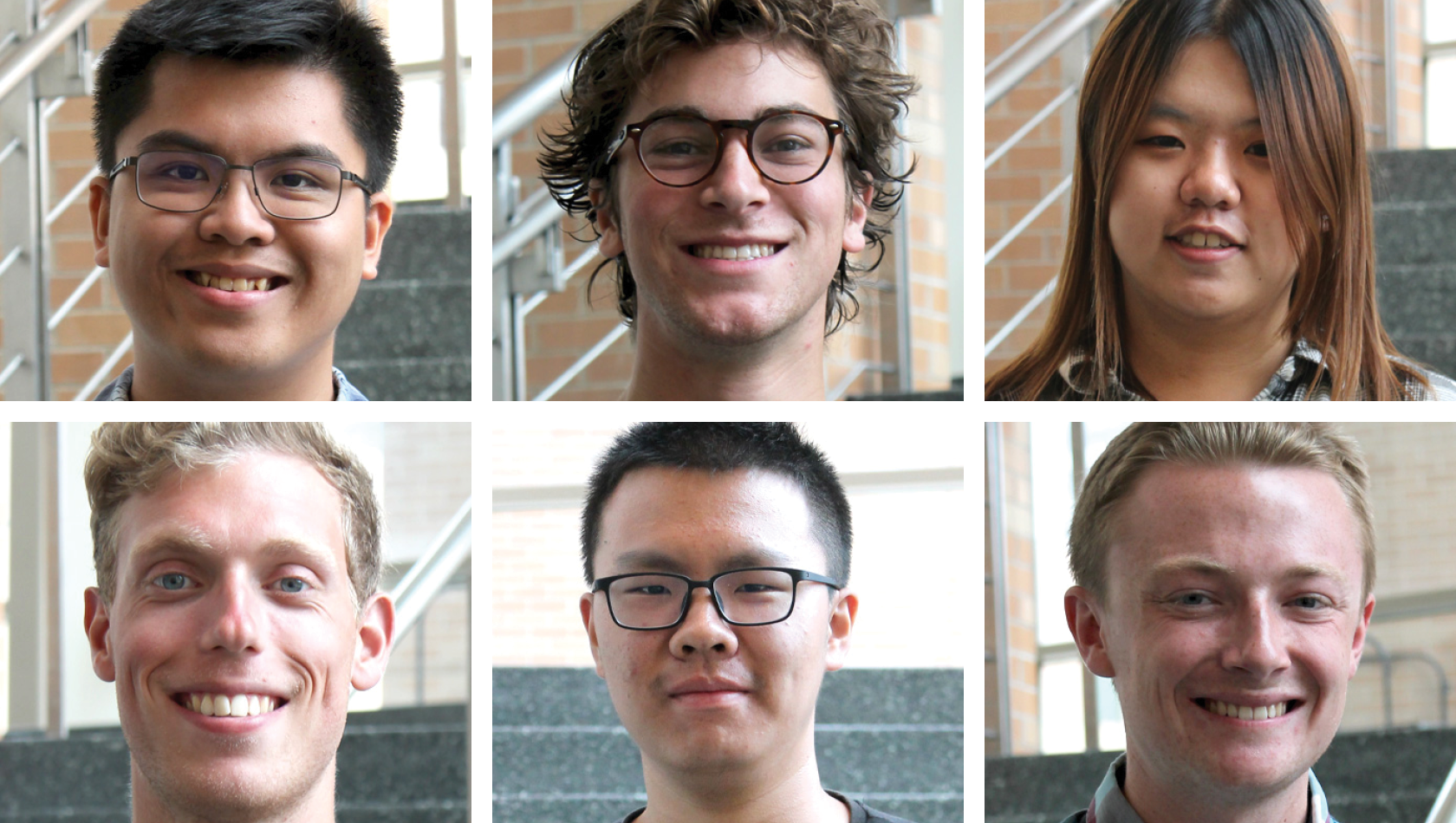
Prestigious campus award funds research, promotes student excellence
By Mary Magnuson
The Hilldale Undergraduate/Faculty Research Fellowship is one of the most prestigious undergraduate research awards offered at the University of Wisconsin–Madison. Every year, it solicits hundreds of proposals for a $3,000 award offered to a select group of rising seniors.
This year, six of the 105 fellowship awardees belonged to the University of Wisconsin–Madison School of Pharmacy’s undergraduate Pharmacology and Toxicology program: Steven Do, Fang Hao, Stephen Halada, Jennifer Li, Nik Zeller, and Nate Verhagen.
“Research is a required and integral part of the PharmTox major,” says Kendra Gurnee, PharmTox program coordinator. “By facilitating research involvement for students, we are ensuring they are developing the faculty connections and experiences needed to be successful Hilldale applicants.”
Thanks to the program’s strong research focus, PharmTox students have a long history of earning Hilldale Fellowships, most recently with four in 2019 and three in 2018. But 2020 marks the highest number of PharmTox awardees in the major in more than a decade.
The PharmTox curriculum encourages students to connect with faculty mentors around campus to conduct pursue their unique research interests. The labs they work in range across disciplines, and this year’s recipients are tackling cancer, aging, and plant growth.
Understanding aging and growth
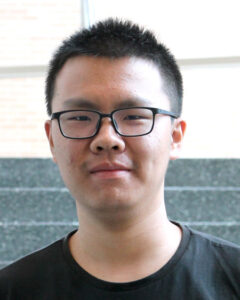
Fang Hao researches in two faculty labs: With Professor Seungpyo Hong, Milton J. Henrichs Chair and director of Wisconsin Center for NanoBioSystems, in the School’s Pharmaceutical Sciences Division, and with UW Department of Biochemistry Professor Sebastian Bednarek. The Hilldale fellowship specifically supports his work in Bednarek’s lab, investigating the role of a cell division protein, dynamin, in plant growth and development.
“Plant cells without the functional protein show disrupted cytokinesis and the overall plant has dwarfed size, infertility, and defective stomata,” says Hao.
He says his biochemistry classes have supplemented the PharmTox program’s foundation in biology and chemistry and allowed him to better understand the wider context of his work, which could inform future research impacting agriculture and crop growth.
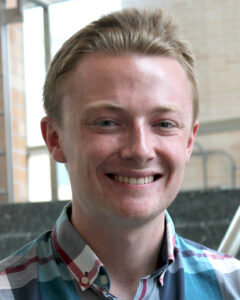
Like Hao, Nik Zeller, who conducts research in the lab of Department of Kinesiology Assistant Professor Jill Barnes, hopes to better understand physiology related to development, but in humans. Zeller studies aging, and the potential effects exercise and blood flow might have on how we age.
Zeller has helped with several physiology-based research projects in different labs on campus, including the Badger Athletic Performance lab in the Department of Orthopedics, and he says the experience he gained there, along with his PharmTox coursework, has helped him to understand his work more holistically.
“A lot of the classes that we take provide a good background and information in related fields to kinesiology that will help me understand relevant research that is published,” Zeller says. “And then just being exposed to a similar but slightly different field to kinesiology is really useful for understanding all the work that we do.”
Addressing cancer
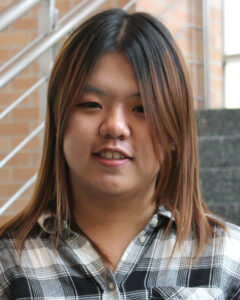
Jennifer Li researches within the Pharmaceutical Sciences Division, in the lab of Associate Professor Arash Bashirullah, where she studies an oncogene, or a gene with the potential to cause cancer, called BCOX1 in fruit flies, which could help to shed a light on several types of endocrine cancer and is highly expressed in breast cancer.
“If this research works, then this kind of model and the process of this research can be used to study other potential oncogenes,” Li says. “I think what we’re doing could provide a generalized model that is useful for other cancer research.”
Like Li, PharmTox student Nate Verhagen is also working to enhance cancer research, in the lab of Department of Medicine Associate Professor Dustin Deming. Verhagen studies the microenvironment of pancreatic cancer and the cells that interact with these cancer cells, which can inform researchers’ understanding of how cancers grow and spread.
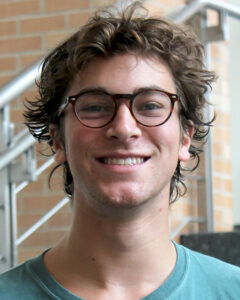
After graduation, Verhagen — who volunteers with Camp Kesem, a UW student-run camp for kids whose parents have cancer — plans to enroll in medical school to continue oncological research.
“I think everyone knows someone who’s been impacted by cancer one way, shape, or form,” Verhagen says. “I’ve seen firsthand the impact that it can have not only on the parents but on the whole family, which definitely is something that drives my work.”
While Li and Verhagen study factors that control the emergence of cancerous growths, two other students are looking at what happens after a tumor develops.
Steven Do, who is completing a double major in PharmTox and economics, is investigating potential ways to treat cancerous tumors in the lab of School of Pharmacy Professor Seungpyo Hong. Specifically, Do is using the collagen that surrounds cancer cells as a target for drug delivery, using them to release cytotoxic molecules into cancer cells. This unique approach likely made his proposal stand out, he says.
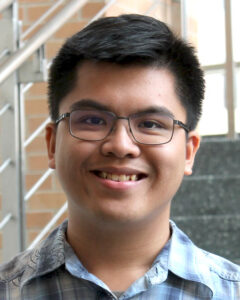
After earning his bachelor’s degree in PharmTox, Do plans to remain in Rennebohm Hall and enter the PharmD program, where he plans to continue his research, and potentially integrate research into his long-term plan for a career in hospital pharmacy.
With Professor Melissa Skala in the Morgridge Institute for Research, Stephen Halada studies metabolic states in immune cells using native fluorescence techniques, which could have applications for several disease states, including cancer and even asthma.
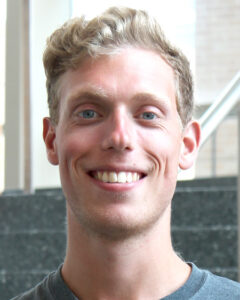
The summer after his sophomore year, right before he began working with Skala’s lab, Halada completed a research internship at St. Jude’s Hospital in Tennessee, where he says he refined research techniques he continues to use regularly. After earning his PharmTox degree, he plans to enter medical school and continue his research while connecting it with patient care.
“One of the really cool aspects of medicine is just how integrated research has become in terms of being a physician today,” Halada says. “I’m hoping that research can be a bigger part of my future practice. I definitely have the basis from the PharmTox program to do that successfully.”
A research-friendly curriculum
Verhagen says that declaring the PharmTox major was one of the best decisions he made coming to UW, both because of the challenging academic load it offers and the community it creates. Without the program, Verhagen says he wouldn’t have submitted a Hilldale proposal at all.
“The PharmTox major allows you to get a really close group of friends, similar to a fraternity or a student organization where you have a tight group of friends that you go through a similar experience with,” Verhagen says. “And the curriculum really prepares you the best of any major for any health care position.”
In their junior year, PharmTox students take a seminar in which they’re required to write a Hilldale-style research proposal. Since the assignment has all the same guidelines as the Hilldale Fellowship, many students just end up submitting their finished proposal to the Hilldale awards, often yielding results.
“I was really excited to win because it was the first moment that someone outside of my lab recognized the research I was doing,” Verhagen says. “To see that someone else think that my ideas are good enough to actually get funded has been a really valuable experience.”